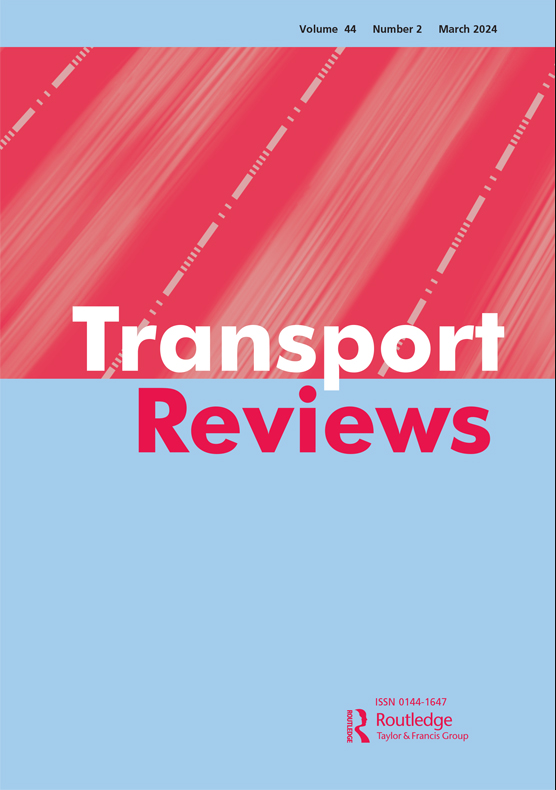Week-long activity-based modelling: a review of the existing models and datasets and a comprehensive conceptual framework
IF 9.9
1区 工程技术
Q1 TRANSPORTATION
引用次数: 0
Abstract
Activity-based travel demand models emerged mainly to fix the conceptual, statistical, and operational deficiencies of conventional trip-based models. This is done by microstimulating the activity scheduling behaviour of individuals/households instead of modelling the number of trips between the zones of an urban area. In the “Next Generation” of activity-based models (ABMs), researchers are making an effort to improve their capacity to replicate the travel-activity patterns of urban populations more realistically. Expanding the modelling time frame from a single day to an entire week is one of the essential aspects of the “Next Generation” of ABMs. Although there is still a long way to go before a comprehensive and operational week-long ABM can be developed, the literature on its different aspects, the theoretical and conceptual frameworks, and the efforts to collect multi-day travel-activity diaries are now at a stage that is worth a comprehensive and systematic review. Therefore, the current study is devoted to exploring the existing literature on multi-day activity-based modelling, categorising its elements in a systematic manner, searching for the research gaps in the existing models and proposing a comprehensive framework to fill those gaps.
为期一周的基于活动的建模:审查现有模型和数据集以及一个全面的概念框架
基于活动的出行需求模型的出现主要是为了弥补传统基于出行的模型在概念、统计和操作上的不足。这是通过微刺激个人/家庭的活动安排行为来实现的,而不是模拟城市区域之间的旅行次数。在“下一代”基于活动的模型(ABMs)中,研究人员正在努力提高他们更真实地复制城市人口旅行活动模式的能力。将建模时间框架从一天扩展到整个星期是“下一代”ABMs的重要方面之一。尽管在制定全面和可操作的为期一周的ABM之前还有很长的路要走,但关于其不同方面的文献、理论和概念框架以及收集多日旅行活动日记的努力现在处于值得全面和系统审查的阶段。因此,本研究致力于探索基于多天活动的建模的现有文献,以系统的方式对其要素进行分类,寻找现有模型中的研究空白,并提出一个全面的框架来填补这些空白。
本文章由计算机程序翻译,如有差异,请以英文原文为准。
求助全文
约1分钟内获得全文
求助全文
来源期刊

Transport Reviews
TRANSPORTATION-
CiteScore
17.70
自引率
1.00%
发文量
32
期刊介绍:
Transport Reviews is an international journal that comprehensively covers all aspects of transportation. It offers authoritative and current research-based reviews on transportation-related topics, catering to a knowledgeable audience while also being accessible to a wide readership.
Encouraging submissions from diverse disciplinary perspectives such as economics and engineering, as well as various subject areas like social issues and the environment, Transport Reviews welcomes contributions employing different methodological approaches, including modeling, qualitative methods, or mixed-methods. The reviews typically introduce new methodologies, analyses, innovative viewpoints, and original data, although they are not limited to research-based content.
 求助内容:
求助内容: 应助结果提醒方式:
应助结果提醒方式:


